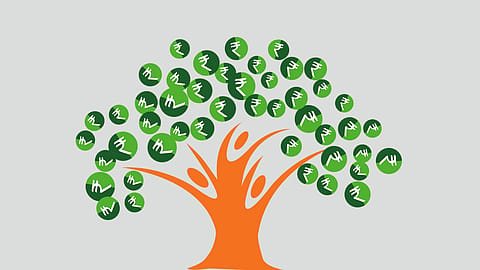Consumer demand, Ayurvedic products to drive growth: Dabur
Dabur India sees a 4.1% rise in net profit to Rs 377 crore in second quarter, up from Rs 362 crore a year earlier.

Consumer-goods manufacturer Dabur India—a century-old maker of edibles likes honey and chyawanprash is confident of growth in consumer demand in India and believes that it has an edge in the growing Ayurveda market.
“With consumer demand for nature and Ayurveda-based products on the rise, Dabur’s positioning as the ‘Science-based Ayurveda’ specialist will pave the way for future growth,” Sunil Duggal, chief executive officer of Dabur India Ltd said after announcing the July-September (second quarter) results on Wednesday.
Baba Ramdev-led Patanjali Ayurved has pushed several FMCG majors including market leader Hindustan Unilever Ltd (HUL), Emami and others up the focus on Ayurveda-based products. HUL for instance, revamped its Ayush brand aimed squarely at Patanjali. According to an EXIM Bank Report, Indian herbal industry is estimated to touch ₹7000 crores by 2020.
Net profit of Dabur India rose 4.1% to ₹377 crore, up from ₹362 crore during the July-September period a year earlier, led by robust growth in shampoo and health supplements businesses. Its consolidated revenue for the quarter is ₹2,125 crore, up 8.5% from ₹1,959 crore a year ago.
The shampoo business grew 49% year-on-year during the quarter, followed by health supplements (12.3%) and skin care and salon category (12%).
The company has reported a 8.6% growth in the domestic FMCG business, led by an underlying volume growth of 8.1%. The broad-based volume growth is in line with other consumer companies like HUL (volume growth of 10% year-on-year); ITC (cigarette volumes were up 5% y-o-y); and Asian paints (11% y-o-y)
“While the global macroeconomic environment continues to be challenging and competitive intensity remains high, we have delivered a steady performance during the quarter by efficiently managing the risks and challenges,” said Duggal adding that medium and long-term growth prospects in India and other emerging markets remain robust and the company is confident that domestic consumer demand will gain pace in months to come.
Recommended Stories
The shift in festive season to the third quarter has also had an impact on the overall performance. The reason for slightly slower volume growth (versus initial expectations) was muted growth of just 1.5% year-on-year in beverages (11.7% growth in base) and constitutes 18% in standalone—mainly impacted by shifting of the Diwali season to the third quarter, said Abneesh Roy, senior vice president at of Edelweiss Securities in a report released just after the results announcement.
Roy also said that the advertising spends of Dabur India’s consolidated entity was down by 8.4% year-on-year.
Dabur’s overseas business ended the quarter with an 8.9% growth, led by strong growth in markets like Egypt (27%) and Turkey (16%).
The Board has declared an interim dividend of ₹1.25 per share, aggregating to a total payout of Rs 266.17 crore, including tax, Dr. Anand Burman, chairman, Dabur India, said.
(INR CR)